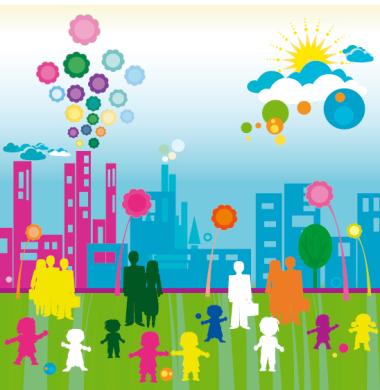|
April 2010

Imagine this: You work in a building constructed with hemp based concrete, fly in planes that land on runways paved with banana-based concrete, and your children walk to school along palm-paved sidewalks. It may sound a bit far-fetched, but Elie Awwad )enrolled in AUB's PhD program in civil engineering( thinks this day is coming. "When my advisor first mentioned sustainability to me," remembers Awwad, "I found it a bit strange and thought it to be somewhat irrelevant to the field of civil engineering." Two years later, Awwad is a PhD student at AUB working with that same advisor (Professor Mounir Mabsout) and Professor Bilal Hamad on environmentally-friendly concrete. Along the way, Awwad spent six years working in Lebanon gaining valuable experience that is serving him well in his PhD research. He explains that sustainability is a hot topic in the construction industry today and has led to a growing interest in "green buildings"-buildings that are designed, constructed, and maintained to minimize their impact on the natural environment. One of the natural resources that is most heavily used in construction is concrete. It is the demand for concrete that has led to what Awwad describes as "the extensive spread of quarries all over Lebanon and other countries in the region that have reduced green areas, which is detrimental to the surrounding habitat and the global ecosystem." The goal of Award's research is to produce concrete using sustain-able materials (such as palm, banana, bamboo, and industrial hemp) instead of aggregates (such as sand and rock) and to demonstrate that concrete produced in this way performs just as well as "traditional" concrete. To do this, he is spending a lot of time at AUB's Civil Engineering Laboratories preparing and testing different samples' tensile and compressive strengths to deter-mine and monitors their mechanical and thermal properties over time. He reports that hemp is proving to be the superior product so far although palm and banana fibers have also performed well. Hemp has some other advantages as well as it is readily available in larger quantities locally and can be more easily purchased from international suppliers than palm or banana fibers. Interestingly enough, although the natural fibers that he is using are avail-able locally, there are not yet sufficient quantities so he is using materials imported from the United States and Europe. Awwad says, however, that if he and others can demonstrate that hemp can be used successfully in concrete composites, it would increase the demand for such fibers locally and regionally thereby providing Lebanese farmers with an incentive to switch from its "illegal sister plant" to industrial hemp farming. Looking to the future, Awwad says that natural fiber reinforced concrete is not yet being used in buildings or other structures, where safety issues are a concern. "You need to remember," he cautions, "that it was only after years of research and testing that we began to use synthetic fibers in concrete such as steel fibers. The use of natural fibers will follow a similar track." |

